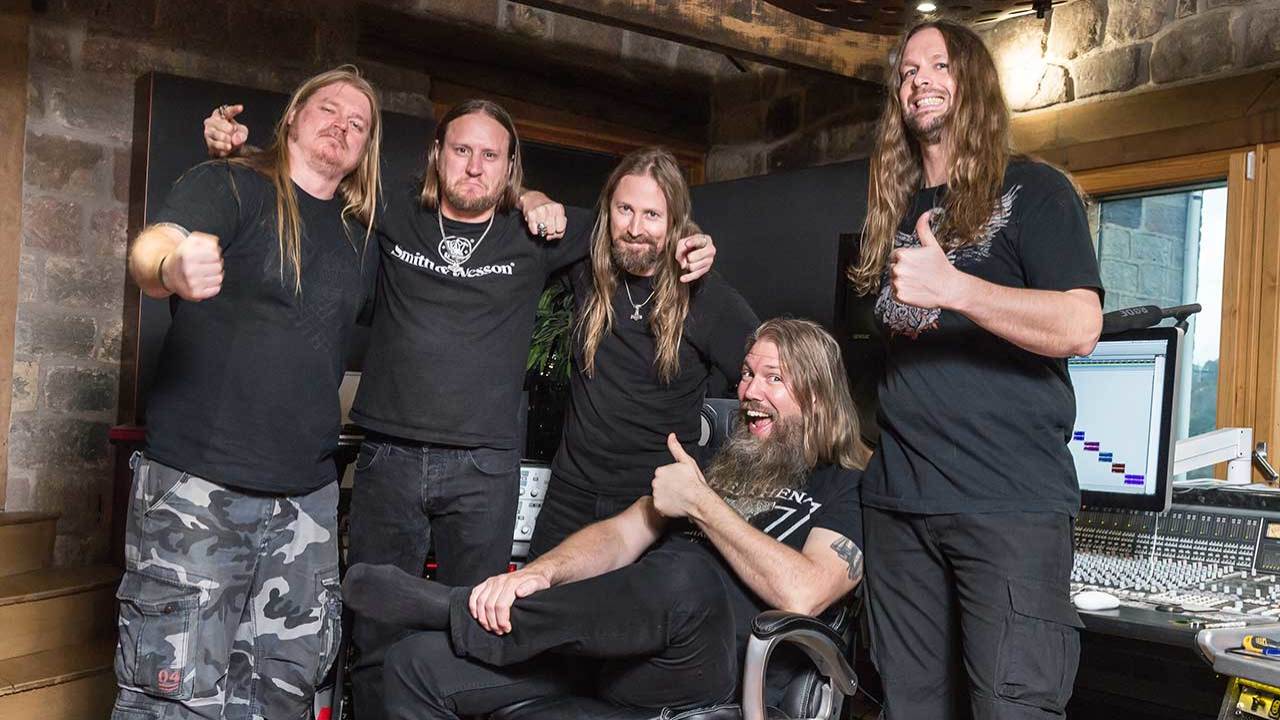The first thing that hits us as we descend the train from London at the quiet Derbyshire village that is our destination, is a fairly strong smell of manure. In fact, while we wouldn’t want to sound like city slickers or anything, it’s probably fair to say that we are now very much ‘out in the sticks’. But we’re not here to appreciate the fresh air – we’ve come to visit the studio of metal producer extraordinaire Andy Sneap which, as it turns out, is actually some considerable distance from this entirely deserted railway station – in fact, the taxi driver (who has apparently lived here all his life) tells us that he’d never heard of the address before he began ferrying various long haired metal folk up to the farm house today.
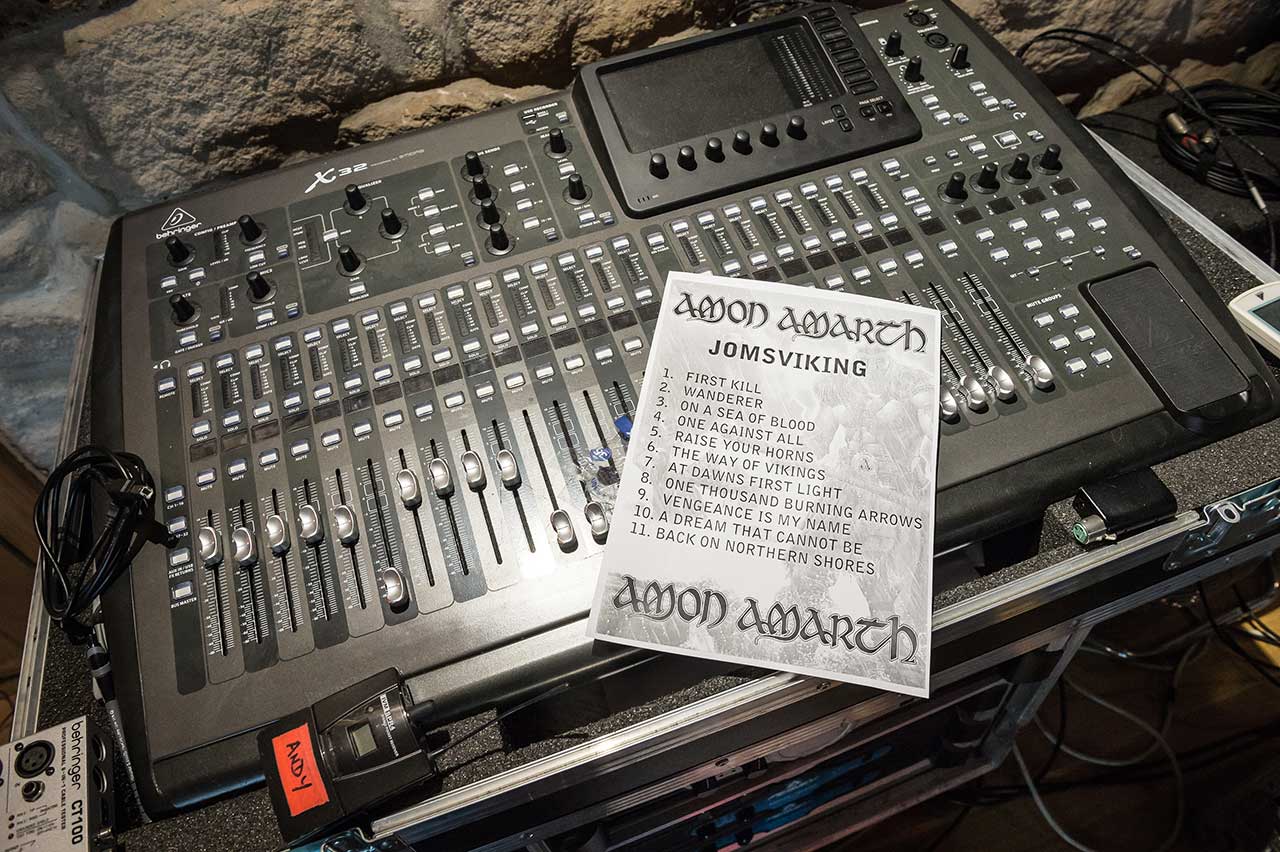
Still, it’s an occasion worthy of a pilgrimage, since we’ve gathered for a preview airing of Jomsviking, the new album by Swedish Viking metallers Amon Amarth, recorded at this very location. Surrounded by fields, cows and not a great deal else, it is a beautiful if slightly desolate setting and one that offers few distractions besides a local curry house that the band have spent much of the last six weeks in. But in fact, with a clan of notoriously beer-draining musicians assembled, it was probably a very wise choice in terms of maximising productivity.
“It’s actually really good to get away so you can concentrate on actually making the album,” laughs guitarist Olavi Mikkonen. “You get a lot of work done and don’t get distracted – unless you are getting distracted by cows. There used to be a couple of pubs when we came here last time [to record previous album Deceiver Of The Gods] but they closed and now the only pub is down in the other direction, and there is this fucking hill you have to climb up every time, so it’s not that interesting. So we’ve been behaving actually,” he laughs, “we’ve been working.”
“We tried recording in the city a couple of times and there are just too many distractions,” smiles vocalist Johan Hegg. “It’s good to work somewhere like this. Sometimes you feel you need to clear your head and it’s good to have that option.”
“It’s the same if you rehearsing,” reflects Olavi. “If you’re rehearsing somewhere for a couple of hours and then you come home, you get involved in other things, but when we rehearse we rent a place and just rehearse for a week. Here at the studio it’s obviously only Andy who is working all the time, whereas we’re switching around; we’ll do three hours on guitar solos, then three hours on vocals. So really the most pressure is on him!”
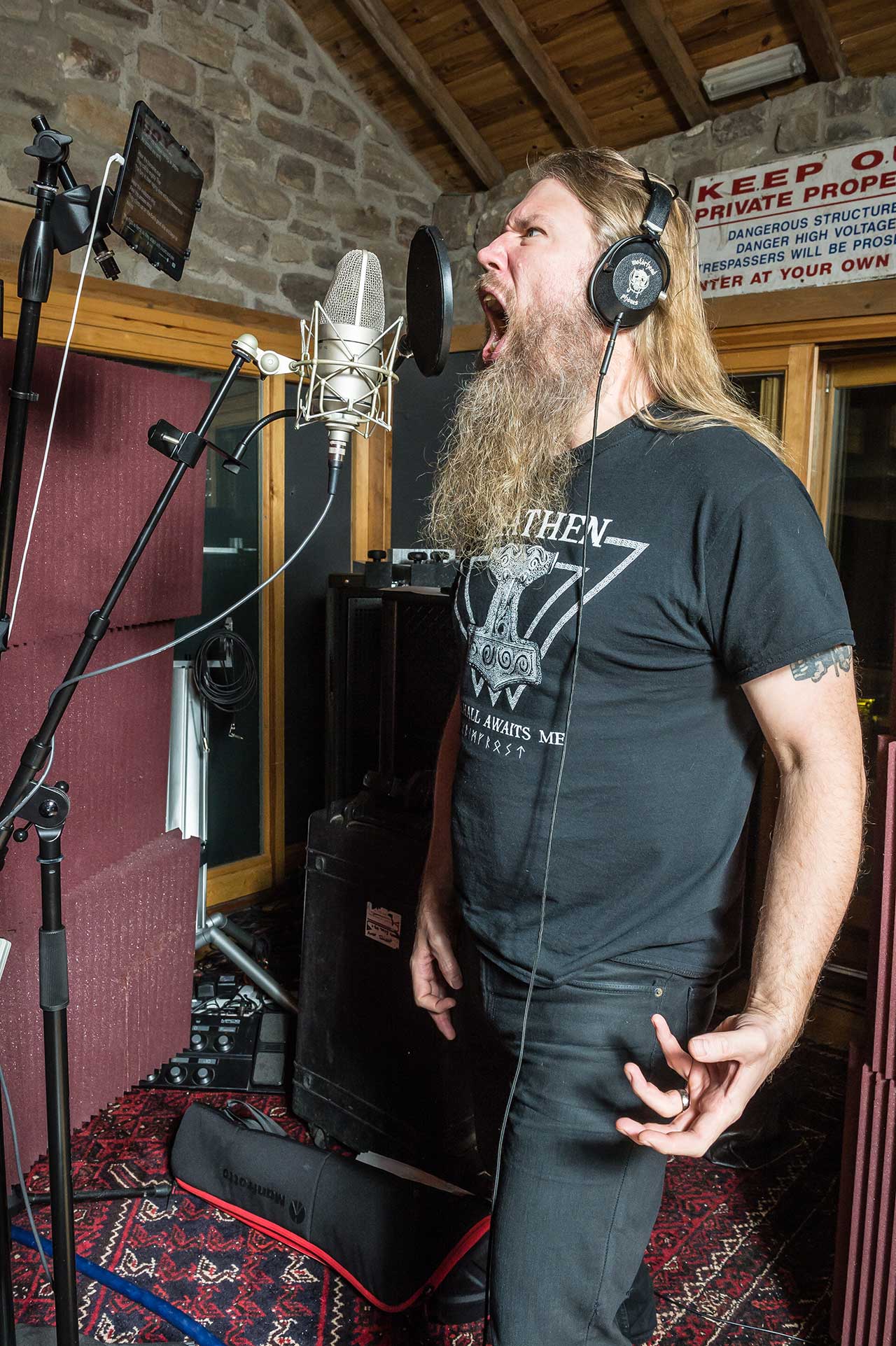
While the circumstances of the recording haven’t changed a great deal since the last album, it turns out that there has been something of a shift in the band’s sound. Despite their death metal backbone, the band have of course always had an unusually prevalent classic metal undertone, and on new songs such as At Dawn’s First Light and Vengeance Is Mine this has really come to fore. Some readers will remember that, in the past, the group have gone so far as to describe their music, only half-jokingly, as heavy metal with death metal vocals – on Jomsviking such a description has never felt more accurate. As Olavi explains however, this shift has been wholly unplanned.
“It’s not like we are saying, ‘Let’s make the next album more heavy metal’ or anything,” he ponders, “but when we make riffs these days they are more heavy metal-oriented. We still have the downtuning and alternate picking and all that, but it’s probably going back to the roots and the music we grew up with, which are bands like Priest and Maiden. We came to the point where we don’t really care, we do what we want. Before we’d say, ‘Alright, maybe that’s too much Iron Maiden’ – who gives a fuck? Iron Maiden are brilliant. It’s kind of like that, we know what we are and it doesn’t matter what we do because it’s going to sound like Amon Amarth anyway.”
“I think we used to censor ourselves more in the past,” Johan agrees. “If something sounded too much like Slayer or too much like Iron Maiden we would not use it. Now we let our influences shine through a lot more. I think also since this album is a concept album and the music has to follow the story and build up, that has influenced things quite a lot which may have accentuated the heavy metal part.”
As Johan suggests, Jomsviking’s status as the band’s first concept album shaped the songwriting considerably and led to a number of new challenges, both for Johan and the rest of the band. Not least among these was translating what ended up as a staggering 140 page long story into a single record…
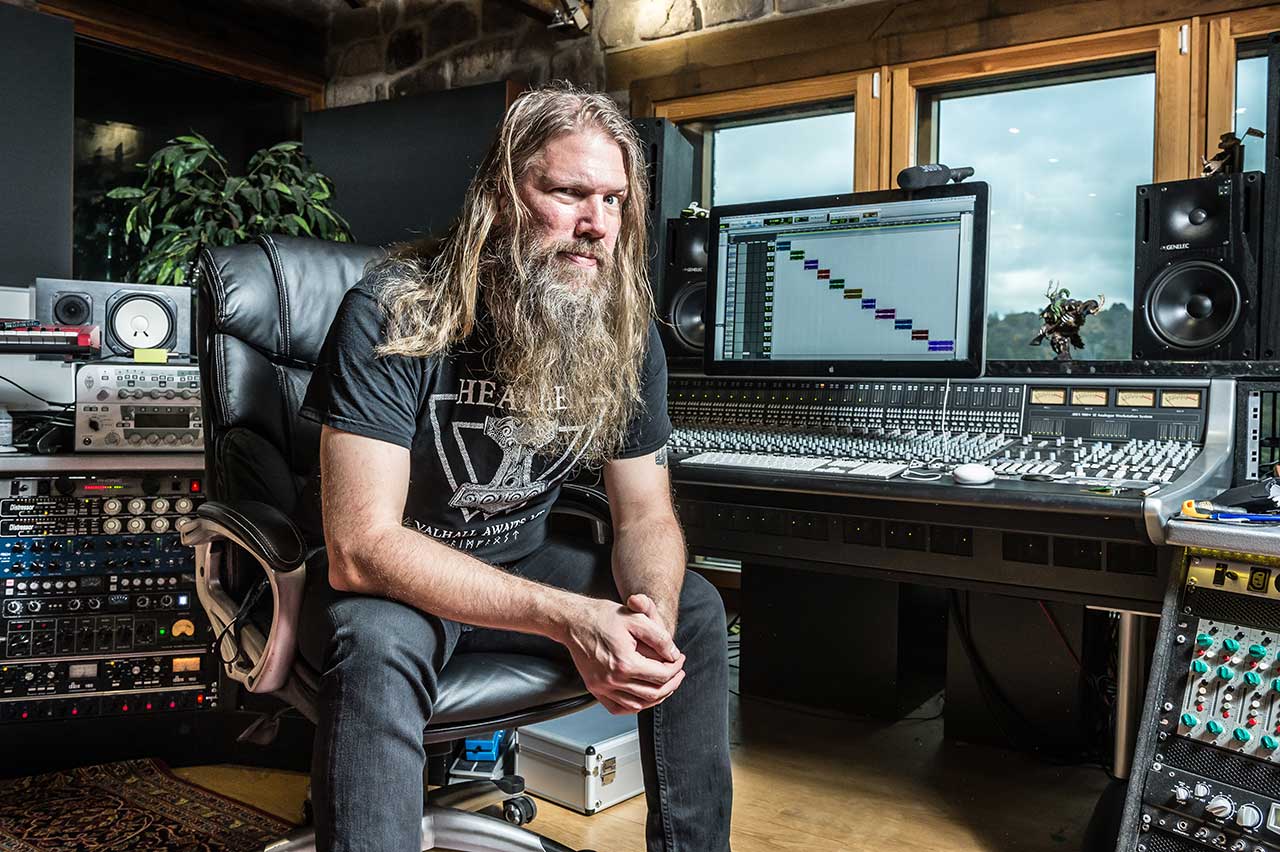
“The hardest part was that we had to write music for the concept that would make you feel like it’s all connected,” sighs Olavi, “but at the same time you can take out any song and it will stand up for itself. We had an order for the concept so we had to find the right song for the lyrics, which song would fit which part of the story – you know, ‘This part of the story is more brutal, we need more brutal’.”
Jomsviking is also notable for featuring two musicians from outside the Amon Amarth clan. The first is none other than the legendary Doro, who provides the voice of the main protagonist’s estranged love on a particularly heavy metal flavoured song called A Dream That Cannot Be. A stirring duet, it comes toward the end of the album and marks one of the more dramatic parts of the tale.
“We’d met her a couple of times but she is like the nicest person you’ll ever meet,” smiles Johan. “Considering her career and the level of ‘icon status’ she has as a female singer in metal she could be a lot more stuck up, but she’s super-mellow and nice. She was very aware of Amon Amarth – last time we played Wacken she was standing at the side of the stage for the whole show – and she was amazing. It was great to see how she took what I’d written and made it her own.”
Just as significantly, if not more so, Jomsviking is the first Amon Amarth album since 1999’s The Avenger not to feature Fredrik Andersson. In his place – for this album and this album alone it seems – was Tobias ‘Tobben’ Gustafsson, best know for his work in death metal outfit Vomitory. It’s a subject that is obviously still somewhat delicate.
“The whole writing process with Tobias felt really, really good,” enthuses Johan. “There was such a positive atmosphere and it made us more inspired to create, he brought a lot of good stuff with him in terms of positive energy. It was really cool. And refreshing.”
“Of course things weren’t as good as we wanted them to be within the band before [Andersson] left,” says Olavi, “and now things are from our aspect are a lot better. There are legal boundaries to what we can and can’t say but we are in a happy place now, that’s a nice way to say it.”
“I mean, I think we could still have done a really good album and worked it through,” Johan says carefully, “I think so…”
“…but I think that would just be pushing the problem ahead of us,” adds Olavi, a tone of certainty in his voice.
Regardless of such hurdles, Amon Amarth remain in a good position, career-wise. Since their breakthrough with 2008’s Twilight Of The Thunder God, the band have been continuing to expand their audience and profile and a slow but steady rate. So what are the goals now at this point for the group?
“I think we’re always pushing ourselves to grow as a band and musicians and people and hopefully that will also mean the fanbase grows,” Johan reflects. “We’ve never been a band to compromise who we are, it’s not about becoming super-popular, it’s about doing what we’re doing the best way we can and usually when you do that, then the fanbase will grow as well. We always try and push the envelope a bit both on records and live shows, so that you get an experience when you come and see the band play, trying to come up with new interesting aspects for the shows that will make it interesting for the fans to see us. Which I think all bands should think about, he adds with a laugh, “but some are happy just to stand there looking at their guitars!”
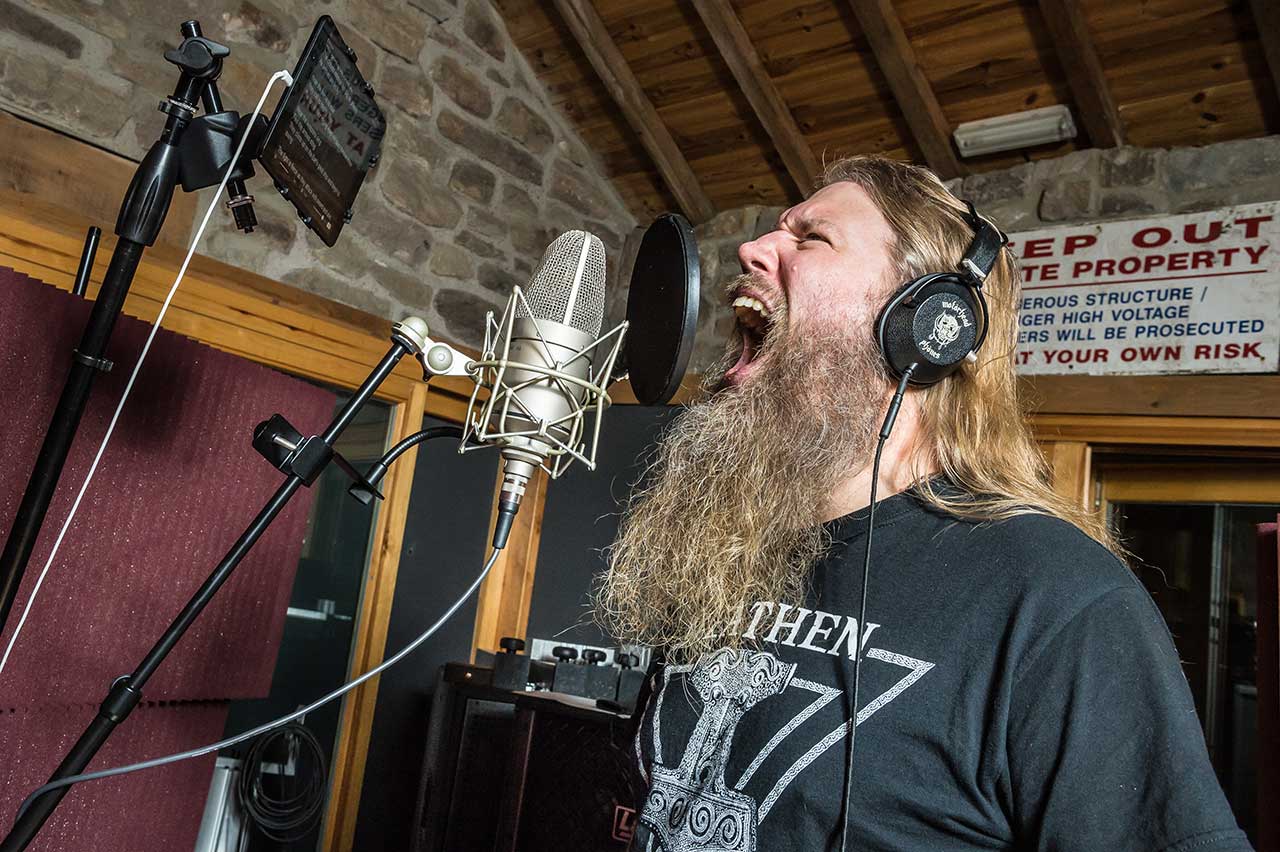
Jomsviking is out on March 25, via Sony. Pre-order your copy here.
